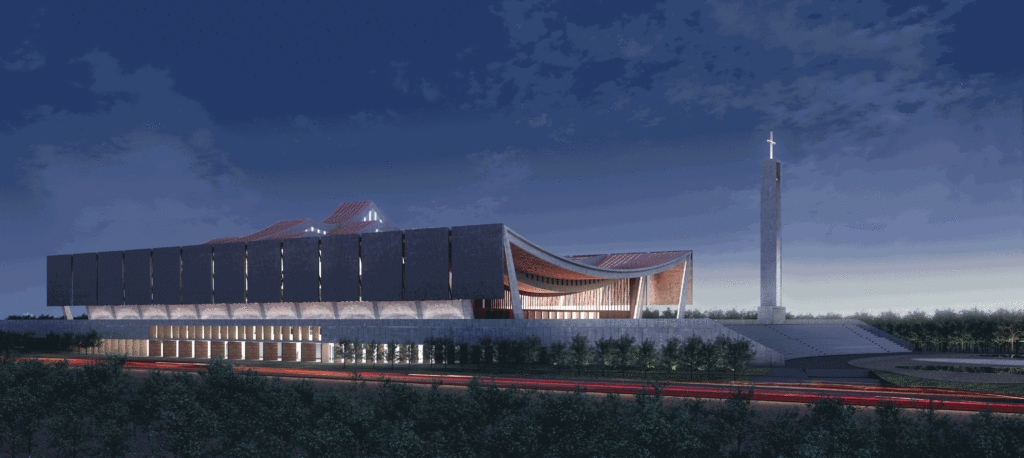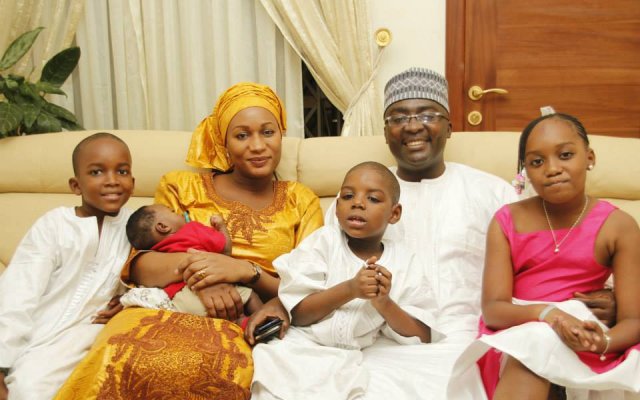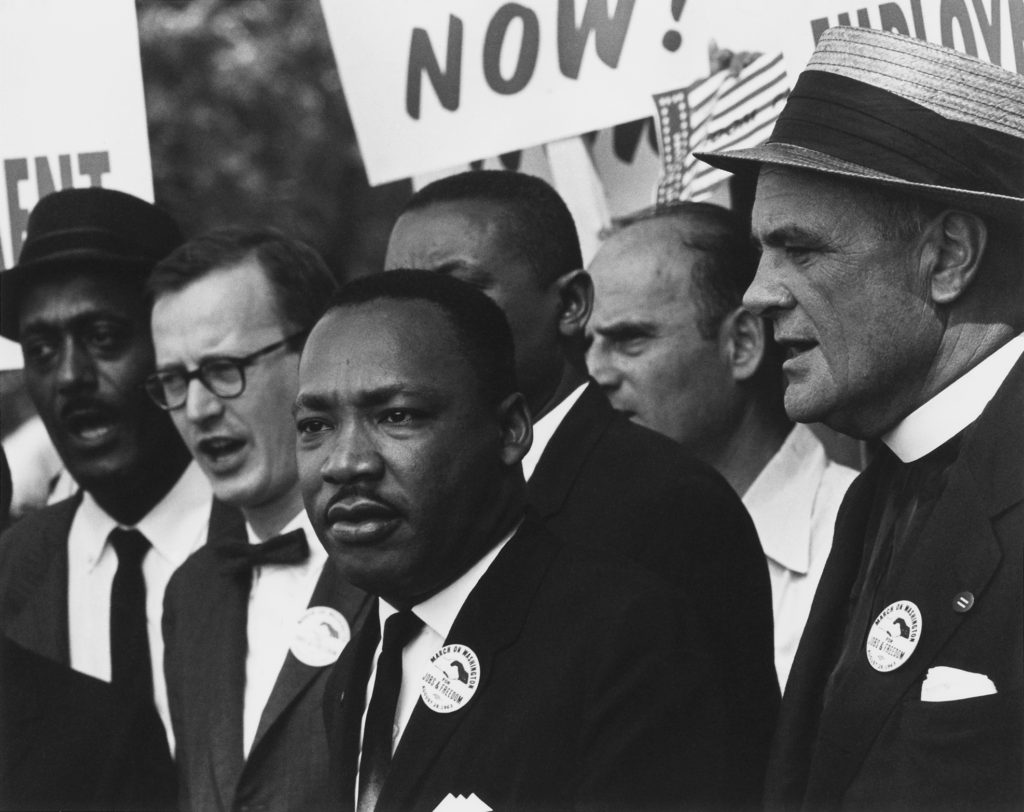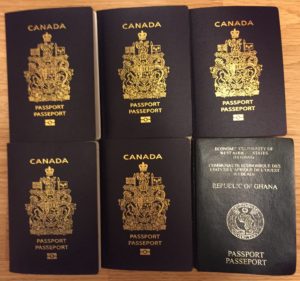NATIONAL CATHEDRAL: Vulgar or Virtuous Venture?
My Unwholly Holy Initial Thoughts, Honest-to-God
‘To build or not to build?’ is more often than not a rather profound, mind-wracking, heart-churning, soul-searching question, be it for a young couple or a growing congregation, a thriving corporation or even an emerging country!
My initial reaction to the notion of building a national cathedral in Accra, Ghana was not that of excitement and welcome. No. It was a rolling of the eyes, a cynical “yeah right! another opportunity for sleek politicians to line their pockets with 10% kickbacks and oil their party’s campaign wheels.” The other thought was, “Really? In a country that is struggling to procure beds for the sick and school buildings for the young or even prevent needless deaths every year from perennial floods? Can this be a priority with our degree of poverty?”
Apart from the economic prudence and social justice angles, from a purely missiological lens I shuddered we may be treading the undesirable path of so-called ‘post-Christian’ Europe, ending up 100 years from now with beautiful but empty cathedrals only good for tourism or sale to condo developers, effigies of a dying spirituality.
Oh yeah, and there is the splendid basilica in Yamoussoukro next door, Notre Dame de la Paix, which I got to visit a couple of times during my one-year sojourn in Cote d’Ivoire as a United Nations peacekeeper. The grandeur of the edifice from afar and the sense of awe it evokes in the soul upon standing on those holy grounds left me schizophrenic how a nation with such a holy habitation would be at war or why this multi-million dollar erection is queerly perched in the middle of poverty and even backwardness. Apparently the papacy—John Paul II was the pope at the time—before agreeing to the 1990 commissioning of this expensive edifice in the midst of pauperism insisted that he would do this only on condition that a hospital be built in the vicinity of the cathedral (sort of to ease his conscience, I guess). As far as I know, then-president Félix Houphouët-Boigny acquiesced and that hospital was commissioned at that time but is still yet to be built, 28 years later!
That being said, my willingness to travel all the way from Montreal to Accra, at my own expense, to be part of a discourse organized by the National Cathedral Secretariat proved to me that my mind wasn’t completely closed to the idea. After taking pains to learn a wee bit more about the proposed project and spending some time last weekend in the United States with a former national head of a historical and significant Ghanaian church denomination, I am now almost won over. May I share why? (these are not his thoughts but mine)
1. More Than a Building
Part of my unease about hardware with no software, the case of Western civilization’s empty cathedrals but denying the power thereof, has been eased with the knowledge that this venture is a two-edged sword of both Cathedral-as-Infrastructure and Cathedral-as-Convenor. Those who say faith should have no place in the public space are ill-informed at best and naïve at worst. This is true and matters even in the West where the so-called post-Christian era has brought in its wake such a keen thrust towards secularism let alone in Africa where religion is life and life is religion, period. You can find loads of books and scholarly articles written about how culture and religion are inseparable in the African paradigm. The Cathedral seeks to facilitate conversations and critical public debates. There is one in the works, which I plan to attend, that has even garnered international interest. We have a lot to talk about, with so much faith and so little integrity, or so many churches but so much filth and poverty in Ghana. Then to act.
In this vein, I congratulate the National Cathedral Secretariat for not falling prey to what Jim Collins calls, “‘the tyranny of the ‘or’” but fully riding on the wave of “the genius of the ‘and.’” Not Cathedral-as-Infrastructure or Cathedral-as-Convenor but both/and. For my worry that we may be building concrete structures rather than investing in the actual making disciples of Jesus Christ, I say to myself, it isn’t either/or; it can, and indeed should, be both/and. For Christians who say our body is the temple of God so we need no other such national cathedral, may I again submit, it’s not either/or but both/and.
2. Just the Land
One of the most important things I have learnt about this project is that the government is only providing the land. None of the money for the proposed cathedral will be taxpayers’ money. The Christians who believe this will be honouring to their God are expected to put their money where their mouth is. That eases my concerns a bit, as a sort of secular state (that’s a fallacy; plus we should perhaps revise our stance on annually facilitating pilgrimages to Mecca on taxpayers’ money).
There are enough Christians and more than enough Christian cash to put up this building. Between a mere two denominations, say the Church of Pentecost (have you seen their conference centre at Kasoa?) and Lighthouse Chapel alone (go and see their Anakazo edifice in my hometown, Mampong-Akuapem), this is easy-peasy.It will be great to see the unity of the body of Christ in Ghana around this one national vision and mission.
As a budding missiologist, such a monument of the Christian faith is of much interest to me as a symbol of Christianity on a continent which only 100 years ago was considered ‘savage,’ ‘dark’, ‘primitive’ and ‘heathen.’ This year, 2018, is the first time in the history of the world, actually, that Africa has been billed as the continent with the most Christians in the world! Perhaps a national cathedral in Ghana, a major player in quantity and quality of Christianity on the continent, may be a worthy monument to mark this new era, to the glory of the God of Africa too.
3. Priorities and Prime Time
It seems like the only good time to build a national cathedral is after there is no poor person in Ghana, a perfect doctor-patient ratio, Malaria has been eradicated, everyone has a job or is in school… in other words after all our problems are solved. In that case, there will never be a good time to build a national cathedral then; not even a house of parliament or a national sports stadium.
The people of Israel, in the prophet Haggai’s day, kept saying “The time has not yet come to rebuild the Lord’s house.” God was upset and queried: “Why are you living in luxurious houses while my house lies in ruins?” In this case, there isn’t even a national cathedral yet, in the first place, but many of us have two, three or more real estate properties. Now, this is what the LORD Almighty’s exhortation: “Give careful thought to your ways.”
This issue can really be a chicken-or-egg-which-comes-first one. Do we prosper first and then honour God with a national cathedral or do we honour God with one first and prosperity ensues. In the context of Haggai, God has no doubt which comes first: “You expected much, but see, it turned out to be little. What you brought home, I blew away. Why?” declares the Lord Almighty. “Because of my house, which remains a ruin, while each of you is busy with your own house.”I will suggest you read the whole chapter here.
We may be saying that when all is well with us we will build a national cathedral for God’s glory; he might be saying, until you build me a national cathedral for my pleasure, honour and glory nil will be well with you.
4. Poverty as an Excuse
Smack in line with the above argument against the national cathedral is the argument about poverty in Ghana. Poverty around is not an excuse for not giving God our best. That is the whole concept of the widow’s mite. That being said, we must put on record that nobody has done more work in alleviating poverty, building hospitals and schools like the Church (Body of Christ) in Ghana. The Church has done enough for society to be worthy of a single ecumenical cathedral at her own cost! Aaba! Even then, this is not just a monument but a practical, functioning construction for the use of the State!
It will be interesting to research how much the Church has contributed against how much even government itself has done in bringing dignity to the lives of Ghanaians. If I may be permitted to be so crass I would dare say that perhaps the Church deserves a national cathedral even more than the government deserves a Jubilee House! Can the Church in Ghana do more? Sure! But even then the Body of Christ in this country has already done more than enough to bless Ghanaians of faith or no faith with education and healthcare, peace and prosperity, civics and commerce, ideas and industry, to deserve one national, non-denominational, inter-denominational edifice to the glory of this God of theirs!
Read some history! It is because of the Church that our local languages like Twi and Ga are written today. The first seeds of cocoa, Ghana’s export lifeline, were brought into the country by the Church; not Tetteh-Quarshie. Even our very independence from colonial masters was to a significant degree catalyzed by the work of the Church. The erudite Kwame Bediako asserts that “a number of educated Christians who had a clear self-consciousness as Africans and Christians and who were alive to their intellectual responsibility to their society” was “as a result of the impact of missionary Christianity on our people.”*
There was poverty in Ghana when we built Parliament House and the National Theatre and the Accra International Conference Centre and Jubilee House. “The poor you will always have with you.” We will come back to who said that and in what context shortly. That is not to say we be cursory or even fatalistic about poverty in our developing country and not do much about it; what is meant is that if we’re going to use poverty in society as a barometer, we will never build anything celebratory or symbolic except hospitals, schools, roads, prisons and such.
5. When Extravagant Worship is OK
Also related to the above is the fact that many shouting, “this is extravagant, oh so unnecessary when we have the poor,” actually don’t care a hoot about the poor! Ghana’s woes stem from that same educated middle and upper class. They remind me of Jesus’ treasurer, Judas.
If anybody loved and cared for the widow, orphan and poor it was Jesus. Yet on this one occasion when a woman with a past decided to pour her expensive jar of perfume on Jesus, he did not stop her. Everyone else thought this was a waste or rather extravagant at best (it was worth a whole year’s salary!) but Jesus thought it was the coolest thing ever—whole-hearted worship, giving God one’s very best.
The ‘everyone’ included Judas Iscariot, who was audacious enough to open his big mouth to say this perfume could’ve been sold and the proceeds given to the poor. He said that because he was a thief and wanted to help himself to additional cash in the kitty, yes, but more importantly Jesus made it clear that there is a place for pure-motived, no holds barred, deep-felt extravagant worship even in the midst of poverty. It was in that context that Jesus shockingly revealed that “the poor you will always have with you.” After investing the equivalent of all the cathedral project money into poverty alleviation programmes as church and government have done for decades, we shall still have poor people in our midst.
6. In the Hearts of Kings
Leaders like to build—figuratively and literally, people and things, systems and structures. I have heard “The king’s heart is like a stream of water directed by the LORD; he guides it wherever he pleases” quoted in untoward circumstances when Christ followers want to see a heart-change of sorts of someone in power regarding some policy and such. But if the Christian God does direct the hearts of leaders of nations, could it be that it is he who has put this desire in the heart of the Ghanaian president? That desire to build for God was put in world leaders like Darius, Cyrus, Nehemiah, Solomon… dare I say Houphouët-Boigny? Could it be that this desire has been implanted into the heart of Ghana’s President by God himself?
7. Might Not Be the One or the Time
Inasmuch as I just spoke to the notion that a leader’s desire to do something great for God is a fact of life and of history it isn’t always acceptable to God because it might not be for them in particular to do and/or the timing may not be right in God’s scheme of things.
The great Jewish king David loved God and once said to himself, “Here I am, living in a house of cedar, while the ark of God remains in a tent.” A prophet called Nathan replied to the king, “Whatever you have in mind, go ahead and do it, for the Lord is with you.” That night, the LORD appears to Nathan and asks him to go back to David and disappoint him. Fascinating! Check out the full story here.
A national cathedral for Ghana may be a good thing, but depending on whether it is God’s will, especially vis-à-vis his timing, it may not be a pleasing and perfect thing in his sight. David rescinded; but provided all the resources for the one appointed and anointed to build that national cathedral to do so at the future perfect time—his heir and son, Solomon.
A Holier Conclusion
For Christians, the question to ask is if such a national cathedral in Ghana will bring glory to God at this time, be a blessing to people at all times and in any way deal another punch to evil to make the righteousness, love, joy, peace, and power of God’s kingdom more established on earth as it is for all time and all eternity in heaven. Will other nations travel from near and far to come and see this edifice and leave breathless in wonder—like the Queen of Sheba when he visited Solomon and his national citadel—that the God of Ghana is great and most greatly to be praised? At the same time, will the beauty and glory of our everyday lives (not just when we’re suited up for church but at Makola and the government ministries) match the magnificence of this national cathedral? As for where to site it as well as the maintenance culture and costs, that is another conversation.
Personally, I would like to give this national cathedral a chance. I am very close to echoing the response of city officials to Nehemiah’s national building proposal, “The God of heaven, he will prosper us; therefore we his servants will arise and build.”
*Bediako, Kwame. 2014. Christianity in Africa: The renewal of a Non-Western Religion. Akropong-Akuapem. Regnum Africa.
Who are these Muslim ambassadors extraordinaire?
Life seems simpler when we can stereotype and put people and things in a box. But when your mental caricature is challenged by hitherto unknown facts or up close and personal encounters you had better shift your paradigm. Ghana’s new vice-president and his wife are making many re-think what being Muslim could look like.
Of Noble Dreams and “Shitty Stories”
Anybody who knows me well will tell you that the use of such a vulgar slang like “shitty” is uncharacteristic of me. This week many joined Americans to celebrate Martin Luther King Jnr. Day. While great progress has been made regarding race relations in North America we still have a long way to go. Some white officer just showed me so!
SPEAK NO EVIL
Once I went all the way to defend myself in a court of law in another province of Canada, a three-hour flight from home, because I felt the police officer who had stopped me months prior was prejudiced because I was black. Even three-and-a-half years ago when I became the first black president (and only black staff at the time) of a predominantly middle-age, white Canadian organization someone came to inform me about one unhappy staff who was wondering, “Why did they [the board] bring this African here to lead us?” I could write a whole book on times I’ve felt ill-treated just because of the colour of my skin.
However, I try to avoid writing on racial tensions, in particular black/white issues, for a number of reasons (which I shan’t enumerate here); but like us all, when it really hits close to home we bury our ‘political correctness’ and as Nike says, “just do it.” As a black man living in North America, I have faced covet and overt discrimination—including being hooted at in a restaurant in southern Ontario by a white woman who I bet hadn’t ever left her province before let alone seeing the rest of the world—but none has gotten to me like the one last Friday. And it’s hard to forget because it was the infamous Friday the thirteenth (13/01/2017).
BLUE AND GREEN
My wife is the Chief Operating Officer of Adeshe Real Estate. As I’ve shared before, we believe in investing in assets towards financial freedom. Because she wanted to check on a property she recently purchased in Champlain, NY (the last major town in upstate New York before crossing the border into Quebec, Canada) last Friday we all decided as a family to go along with her just for the ride.
Out of my own stubbornness (that’s another subject for another day) I have not picked up Canadian citizenship or passport so whenever we travel it is a very interesting array of five blue Canadian passports and one green Ghanaian one—mine. As a result, usually I’m the one who delays the rest of the family at the border because I’m often asked to go into the U.S. Customs and Border Protection (CBD) building to receive an I-94 form to enter the States. This time, I was quite exhilarated that this wouldn’t be necessary because I had kept by last I-94 form intact in my passport since I got it last July six months prior. In fact, it was due to expire the next day (January 14) and so I planned to leave it with the Canadian border authorities upon our return from Champlain before re-entering Canada. Nothing could’ve prepared me for what was about to happen in Obama’s America.
BLACK AND WHITE
Had I known what was about to transpire I might not have changed from the lane of cars I originally was in. There weren’t too many cars at the border so barely two minutes after I switched lanes we got to pull our grey Dodge Caravan, laden with the Perbilets, to the window of Officer Robert.
After the initial pleasantries I handed him the deck of passports as he asked, “Where are you headed?”
“Just over to Champlain,” I confidently responded.
“What for?” he continued his inquiry.
“To check out a property we purchased over there?” I replied.
And that is when he lost it… This young, white kid (probably 20 or 21 years of age) then says, “THAT IS SUCH A SHITTY STORY!”
“What? Excuse me?” I retorted in disbelief. “Did you say “Shitty Story?”
Officer Robert not only had no remorse but in addition, decided to ask us to proceed into the building I was hoping I could avoid a waste of time in.
“Why do we need to do that?” I insisted, “since I have a valid I-94?”
The young man in his white prejudice had either been blinded to that fact or couldn’t care less.
“Too bad, you still have to go because I’ve already punched it in the system that you’re heading there.”
I expressed by utter disgust at his unprofessionalism and promised I would report him to his supervisor. Again, he couldn’t be bothered.
STUPIDITY, LIKE SUCCESS, HAS NO COLOUR
So we dragged ourselves in our annoyance—a family of six, with four children bundled in cumbersome winter jackets, hats and stuff—into the building. My wife Anyele was fuming; going gaga! And she had every right to.
The officer who received our documents inside wondered why on earth we had been asked to come and see her when I had a valid I-94—and even planned to return to Canada not just the same day, but even in less than an hour’s time! She just handed our passports back to me and asked us to proceed but I wouldn’t let this slip by without a fight. I told her I wanted to see their supervisor.
When I did launch my complaint against Officer Robert—from his rude attitude through to his uncouth, vulgar “shitty story” statement to his incompetence (can’t even read a date!) in sending us into the building—she casually apologized and said she would have a conversation with the young man but I noticed what really got her taking me very seriously was when I said, “I’m going to put this on FaceBook.”
She made a copy of my passport and handed me a formal complaint sheet to fill and submit. They’ll be receiving it soon, DV.
RED & WHITE STRIPES
I have travelled to some 30 countries and sometimes met with some very annoying circumstances but honestly I have never felt more disrespected at an international border. The last place I would think would be Obama’s America.
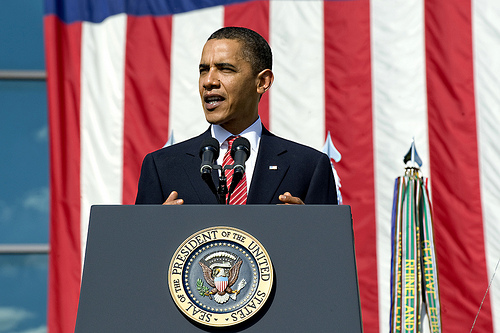
President Obama with background of broad red and white stripes of U.S. flag (credit: keywordsuggest.org)
So, half a century after Martin Luther King’s civil rights fights and significant progress made—to the extent that eight years ago we saw a black man occupy the White house—the evil of racial prejudice and discrimination still has deep roots in the United States of America. At least I wasn’t shot at like others unfortunately have, leaving Anyele a widow with four fatherless children.
I have heard and read of many glamourous and well-known bright, black stars in the land of Red and White Stripes that have been very badly treated because of their skin colour; in spite of their glory and fame. Even some maintain that President Obama himself, by virtue of his black heritage, has been, arguably, the most disrespected sitting U.S. President till date.
Many were surprised when the Republican Party’s only African-American senator, South Carolina’s Tim Scott, told the U.S. Congress last year that since he came into office, he had been stopped seven times by police in a single year.
Scott said that one of his black staffers in Washington, D.C., got so tired of being pulled over in his nice car that he sold it.
“Imagine the frustration, the irritation, the loss of dignity that accompanies each of those stops?” he said.
“While I thank God that I have not endured bodily harm, I have however felt the pressure applied by the scales of justice when they are slanted,” he said.
“I have felt the anger, the frustration, the sadness and the humiliation that comes with feeling like you’re being targeted for nothing more than being just yourself,” he added.
In fact, in this CNN video clip he admits that while he was rightly accosted sometimes because he was in the wrong–speeding–he laments, “But the vast majority of the time I was pulled over for nothing more than driving a new car in the wrong neighbourhood or some other reason just as trivial.”
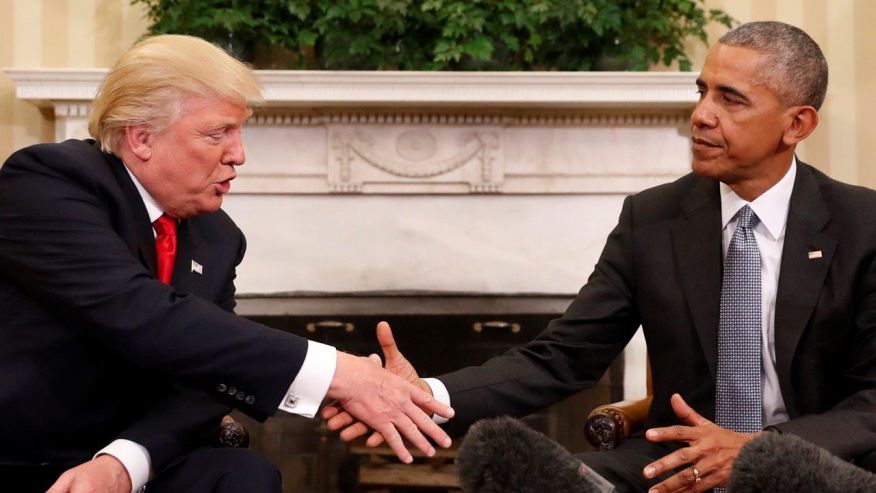
President-elect Donald Trump and sitting US President Barak Obama during the transition period (credit: shadowandact.com)
DREAM OR NIGHTMARE?
This week is historic in America. The same week that began with a Monday on which Martin Luther King Jnr. is celebrated, closes on a Friday when the first and only black president leaves the Oval office for a white one who many fear isn’t exactly colour-blind. We, my family and I, were living our dream of being international investors, a reality some white officer thought was so incredulous for a black family with an accent to live in—a “shitty story,” even in the year 2017 in “the land of the free and the home of the brave.”
As Obama gives way to Trump will Martin Luther King’s dream, “… that my four little children will one day live in a nation where they will not be judged by the color of their skin, but by the content of their character” remain a dream, become a reality or even morph into a nightmare? We watch and pray.

